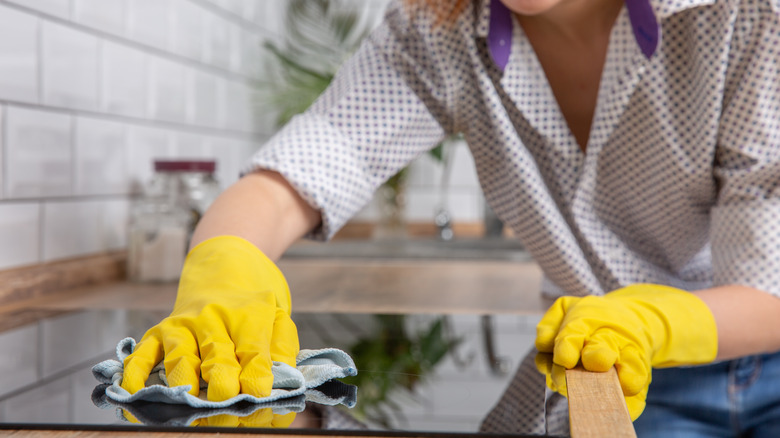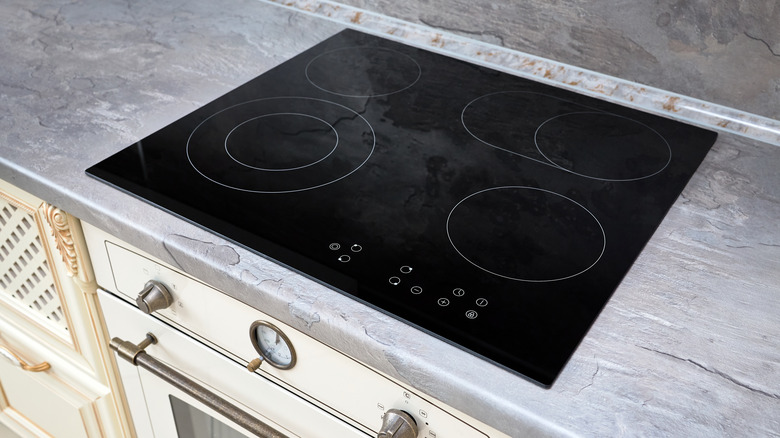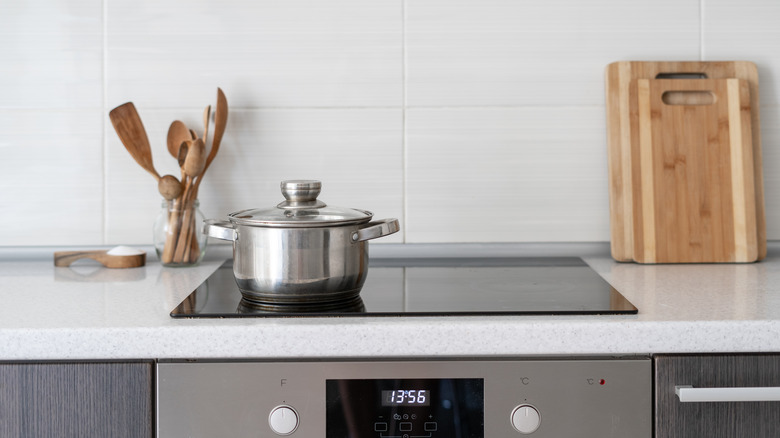Why You May Want To Avoid Using Baking Soda To Clean Your Ceramic Stovetop
When you find that holy grail DIY cleaning ingredient, you can be tempted to use it all around your home. This is the case with a few household ingredients, like baking soda. There are so many baking soda cleaning hacks out there that make it seem like it's a no-brainer staple to have around. In many situations, it's a great compound to lean on, but some features in your kitchen could do without the abrasive scrubbing power it provides.
Ceramic cooktops are one of the household items you should never clean with baking soda. Baking soda affects your ceramic stovetop and the items on top of it in a few ways. The main issue is the risk of scratching and damaging the surface which can ruin its usability. Here's why it's best to leave the baking soda in the box for this kitchen appliance and other ways outside of scratching that it can mess with your cooking area and tools.
Why baking soda isn't a great ceramic stovetop cleaner
Ceramic stovetops feature a panel that covers the heating element that sits beneath. It looks and feels like glass and is just as smooth on your countertop. This makes it different from a gas or electric stove with exposed coils or burners. This sleek surface area makes it easy to wipe down spills and splatters after cooking — just not with baking soda. Because it has this ceramic surface, the stovetop is much more prone to scratches. Baking soda is known to be an abrasive chemical and scrubbing it into ceramic burners can lead to fine lines and damage.
Its particle structure is why baking soda is so abrasive; which may be ideal for cleaning out old spills in your refrigerator but isn't suitable for washing delicate surfaces that scratch easily. Occasionally, you may find that some user manuals or guides say it's okay to use baking soda on a particular model of ceramic stovetop. Just follow directions carefully and listen to what the manufacturer suggests — it's always better to be safe than sorry.
Other ways baking soda can affect your stovetop and kitchen essentials
It's not just the stovetop that baking soda can affect. If you choose to use this on your ceramic cooking surface, cookware and bakeware can suffer, too. Remnants of baking soda and particles left over from your cleaning efforts can cling to the bottoms of pots and pans. While this is fine for some materials, others won't handle it so well. Aluminum cooking gear, for instance, can be discolored by baking soda, whereas copper, cast iron, and non-stick can handle it.
Fortunately, glass and ceramic are both easy-to-clean stove types, and there are plenty of other cleaning solutions and options to help you get them back to mint condition. There is another kitchen ingredient that also has a good reputation: White vinegar. One of the ways to use white vinegar in your kitchen is to clean a ceramic stovetop. Use a non-abrasive cloth to rub in the solution and watch stains and sticky spots dissolve. With a little caution, you can keep your stove clean and free of scratches.


